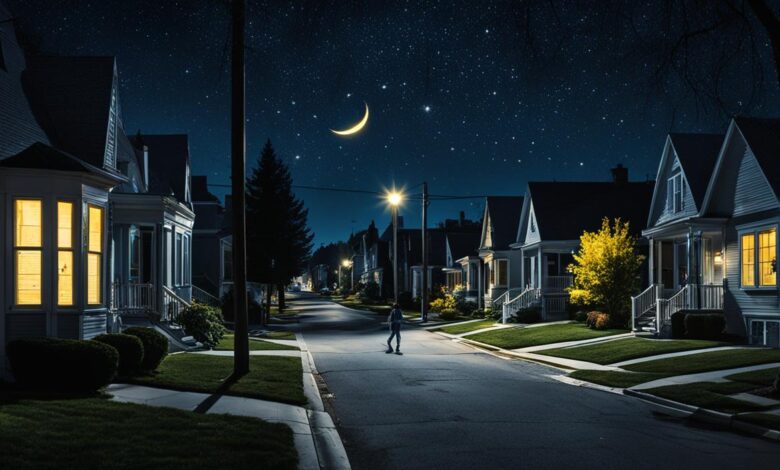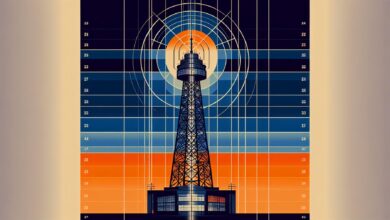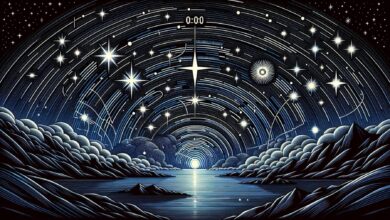Is 11PM day or night?

Have you ever thought about how odd time is, especially at 11PM? This hour makes us wonder if it’s still day or the start of the night. It’s a confusing time that leaves many baffled: is 11PM the end of the day or just the night beginning?
Your location and the season matter a lot in this mystery. Picture being in New York’s busy streets in summer at 11PM. Now, think of someone in Norway’s quiet, snowy winter. The debate of day vs night is seen through different cultural and scientific views.
We’re going to dive deep into this fascinating topic. We’ll look at the factors that make us see 11PM as day or night. You might start to see things differently as we tackle this intriguing issue together.
Contents
- Understanding the Concept of Day and Night
- Exploring the 24-Hour Clock and Its Significance
- The Science Behind Nighttime: From Dusk Till Dawn
- Night Owls vs. Early Birds: Lifestyle and Biological Clocks
- Is 11PM day or night? Cultural Norms and Modern Life
- Global Perspectives: When Does Night Begin Around the World?
- Conclusion
Understanding the Concept of Day and Night
The day and night cycle is vital to how we live. It shapes our environment, feelings, and daily routines. Understanding it means looking into factors like time, light, and cultural views. These factors show us why we have day and night.
What Determines Day and Night?
The Earth spinning makes day and night. Parts facing the sun get light, making it day. The other parts face away, creating night. This spinning action creates our day-night pattern.
The Role of Time Zones in Daylight Perception
How we see daylight links to time zones. Time zones help coordinate time globally. But they also change how we see day and night. When it’s evening in one place, it might be morning elsewhere, affecting how we feel and act.
Social and Cultural Views on 11PM
Cultures view 11PM differently. For some, it’s bedtime. For others, it’s a time for fun and socializing. This shows how deep cultural norms can affect our view of night.
Learning about these factors helps us grasp our day and night cycle better. It changes our sleep and social life. Each aspect adds to the worldwide mix of day and night, impacting everything from our rest to how we connect with others.
Exploring the 24-Hour Clock and Its Significance
The 24-hour notation, also known as military time, is used worldwide for its clarity. It’s different from the 12-hour system in the U.S. that needs AM and PM. This system is key in sectors like aviation and the military, making sure the time is clear.
Using the 24-hour system helps avoid confusion and keeps things running smoothly. In the military, understanding time exactly is very important. This system helps prevent mistakes. In aviation, it helps with scheduling flights safely and on time.
- Enhanced clarity in communication across different time zones.
- Reduced errors in settings where precision is paramount.
- Improved integration with digital systems that operate on a 24-hour mechanism.
The 24-hour clock isn’t just for the military or aviation. It helps international businesses and software developers work better together. Understanding this system shows its big impact on global operations.
If you’re working with people in different countries, knowing the 24-hour clock is very useful. It makes planning things like conference calls easier. Learning it might seem small, but it’s a big step towards working better globally.
The Science Behind Nighttime: From Dusk Till Dawn
The change from day to night is quite interesting. It involves understanding why night happens, how Earth’s spin affects it, and the twilight phases. This natural process affects our daily lives. It influences our biology and how we act as a society.
Twilight Transitions: Civil, Nautical, and Astronomical
Twilight happens between daytime and nighttime. It has three phases: civil, nautical, and astronomical. These are based on how far below the horizon the sun is. Each phase is useful for different activities.
- Civil Twilight – the sun is 6 degrees below the horizon. People can still do most outdoor stuff without needing lights.
- Nautical Twilight – at 12 degrees below, sailors use this light to navigate by comparing the sea and sky.
- Astronomical Twilight – with the sun 18 degrees down, this time is perfect for astronomers to study stars without sunlight interference.
How Does the Earth’s Rotation Affect Our Perception of Night?
The spinning of Earth is why we have day and night. This rotation makes the sun appear and disappear at the horizon. That’s how we know it’s day or night. If it’s 11PM where you are, you might see total darkness or still notice the twilight.
This full view from evening to morning shows not just what night is. It also teaches us about Earth spinning and the twilight times. All this helps us understand how we see time passing.
Night Owls vs. Early Birds: Lifestyle and Biological Clocks
Are you up late or early? Your daily rhythm matters a lot in life. Knowing about circadian rhythms and biological clocks can explain why some like the night and others the morning.
Circadian Rhythms and Their Impact on Daily Activities
Circadian rhythms are internal clocks that manage our sleep-wake cycle every 24 hours. They also affect our hormone levels, body temperature, and health. Understanding if you’re a night owl or an early bird can make you more productive and healthy.
The Social Implications of Being Active at 11PM
For some, being up at 11PM is normal. For others, it’s strange. How society views late-nights differs. Night owls enjoy the quiet of 11PM for creativity, unlike early birds who might be sleeping.
What drives your schedule? Habit or your inner clock? It could be due to genes, environment, or culture. Knowing your circadian rhythm can help you live better. It helps in scheduling and improving health and productivity.
Is 11PM day or night? Cultural Norms and Modern Life
In our busy world, telling day from night can be hard. Modern life makes it tricky to see where one ends and the other begins. This look at how culture and day’s division affect night habits is eye-opening.
Technology and 24/7 services have changed how we spend our nights. In cities that are always lit, it’s hard to know when the day ends. This makes natural night signs less clear.
Our habits and traditions shift as society changes. Here’s how new schedules have changed day and night for us:
- Now, industries like health and tech have shift work, making us active well into the night.
- With online shopping and services always available, we blur the line between day and night even more.
- Dealing with different time zones means taking calls or having meetings at odd hours.
These changes show how far we’ve moved from old day division norms. It’s a big shift in how we live together.
We need to understand and adjust to these new times. They influence how we live, day and night. Even though 11 PM is technically night, in today’s world, it’s as busy as the day.
Global Perspectives: When Does Night Begin Around the World?
Discovering how cultures worldwide transition from day to night is truly intriguing. It’s a journey that appeals to travelers, culture enthusiasts, or the simply curious. Learning about these varied traditions enhances our understanding of the world. It also shows the intricate ways we mark day and night globally.
Timekeeping in Various Cultures
Around the world, the start of night can differ greatly. Some cultures see night begin at sunset, as daylight fades. Others might define night based on the clock, for reasons rooted in history, religion, or practicality. This variation influences everything from work schedules to daily habits.
International Standards for Defining Day and Night
Even with cultural differences, there’s a push for global day and night standards. These are key in areas like flying and worldwide communication. For example, the International Standard Time (IST) offers a shared method. Yet, local customs and interpretations still vary widely.
-
Sunset and sunrise are common natural indicators for day and night globally.
-
Legal times, such as 11PM, are often set as the start of the night in many places.
-
Evening prayers or rituals in various religions signify the beginning of night.
Conclusion
We’ve traveled through the meaning of time, focusing on the mystery of 11PM. Time isn’t just about minutes and hours. It’s shaped by where we are, our culture, and how we live. The question of whether 11PM is day or night makes us think. It depends on where on Earth you are, the season, and the community’s way of life.
Talking about 11PM as day or night depends on many factors. Where you live changes its meaning. In northern places, summer nights feel like endless days. Near the equator, it’s darker earlier. How people spend their hours at this time also varies. For some, it’s a time of rest; for others, it’s part of their productive day.
The time of 11PM means different things to different people. Our world is big, connecting us across places and cultures. This makes 11PM hard to define in simple terms. This hour holds a special place. It’s part of our stories, shared and personal, against time’s constant flow. So, 11PM is more than a time. It’s where life’s stories of light and darkness come together.



